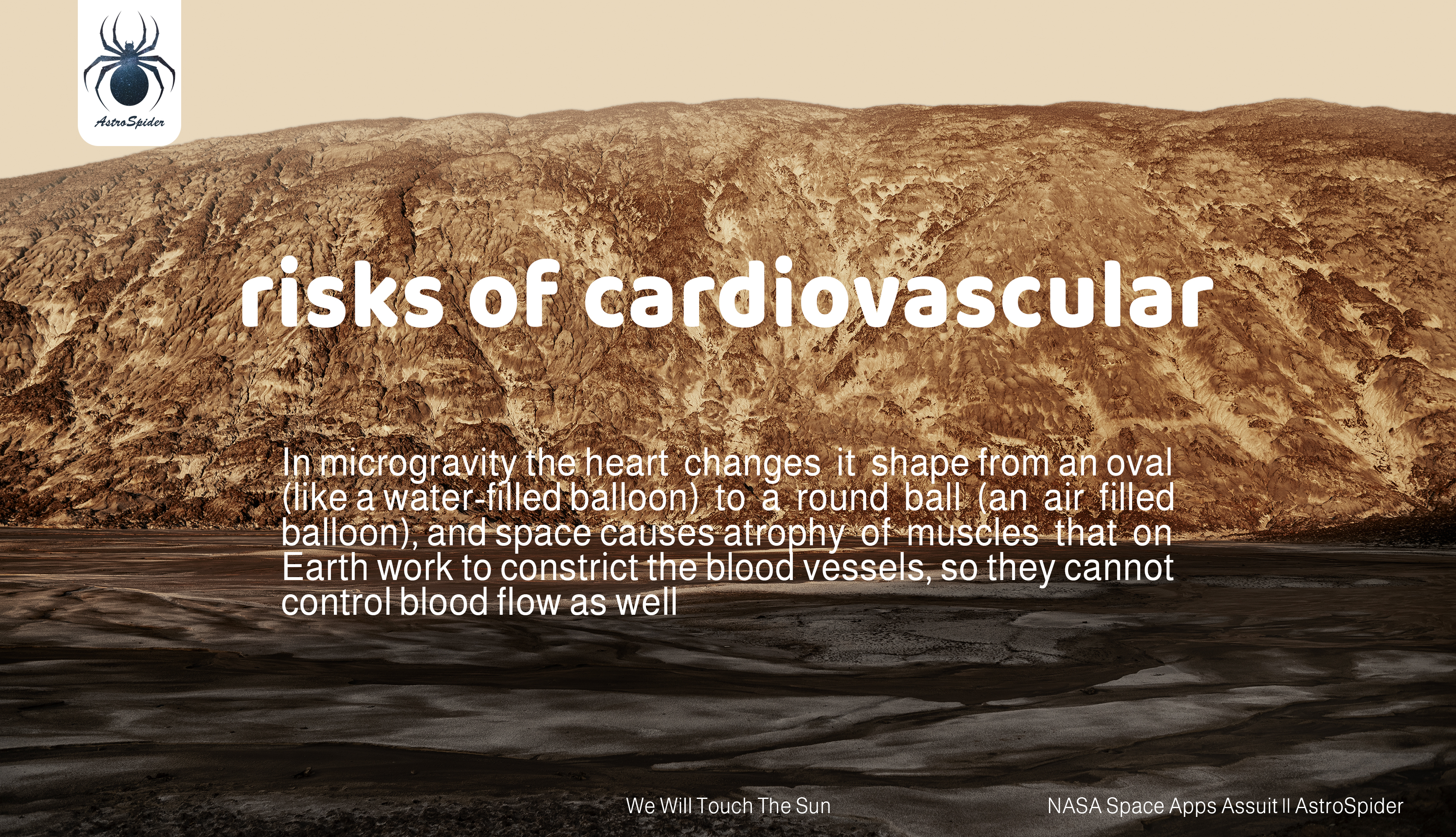
risks of cardiovascular
It is one of the incomprehensible challenges due to the lack of sufficient resources and the follow-up after the end of space flights for astronauts, and to what extent the risks related to the heart and blood vessels in the long term affect the astronauts.
Other challenges also related to the gravitational difference between different regions and exposure to space radiation are the risks of the cardiovascular system. Weight in low Earth orbit. During spaceflight Other risk factors that appear during spaceflight, including (altered or inadequate sleep, increased levels of psychological stress, impaired glucose metabolism, and persistent expansion of the heart chambers) may contribute to an increased risk of cardiovascular disease. Current research also supports increased levels of oxidative stress and inflammation
This is for weightlessness and the damage it causes. As for space radiation and its impact on the cardiovascular system, it includes methods of experiment and research on it by following up on atomic bomb survivors, patients receiving radiotherapy, and those who are occupationally exposed to an increased risk of heart disease. The rate of cardiovascular events increases with increasing dose to cardiac tissue. To apply these findings to the astronaut community, it is important to look at astronauts, who have a different physique than the general population and are generally healthy and non-smokers.
Research is based on this part by observing human radiotherapy patients, occupational groups, and rodent models compatible with the human system such as pigs, rabbits...
The solution to this challenge is to mitigate cardiovascular disease risk factors associated with exposure to spaceflight (eg, reduced physical activity, poor dietary habits, circadian dysregulation, poor sleep, immune dysregulation, psychological stress, and elevated levels of stress). oxidative stress, and inflammation) would be appropriate ways to control the risk of cardiovascular disease during and after spaceflight. The current astronaut and aviation selection criteria are intended to reduce the risk of cardiovascular disease due to the preflight conditions; Cardiovascular health risks are managed on Earth to prevent them from occurring during flights and beyond. In addition to the habits encouraged on board during spaceflight (eg, exercise, appropriate dietary choices, improved sleep habits, and psychological stress management), countermeasures to consider may include interventions that have been shown to be effective in ground-based research such as sulfhydryl compounds. or thiols, antioxidants, anti-inflammatories, and cholesterol-lowering drugs (eg, statins and beta-tocotrienols).
No medical countermeasures have currently been validated to mitigate the long-term cardiovascular effects of chronic low-dose mixed field radiation experienced in the spaceflight environment, but a variety of potential countermeasures are available that can be tested in the context of space radiation exposure. . The countermeasures selected should be effective in reducing cardiovascular risk and safe to implement in the healthy astronaut community. and cholesterol-lowering medications (such as statins and beta-tocotrienols).